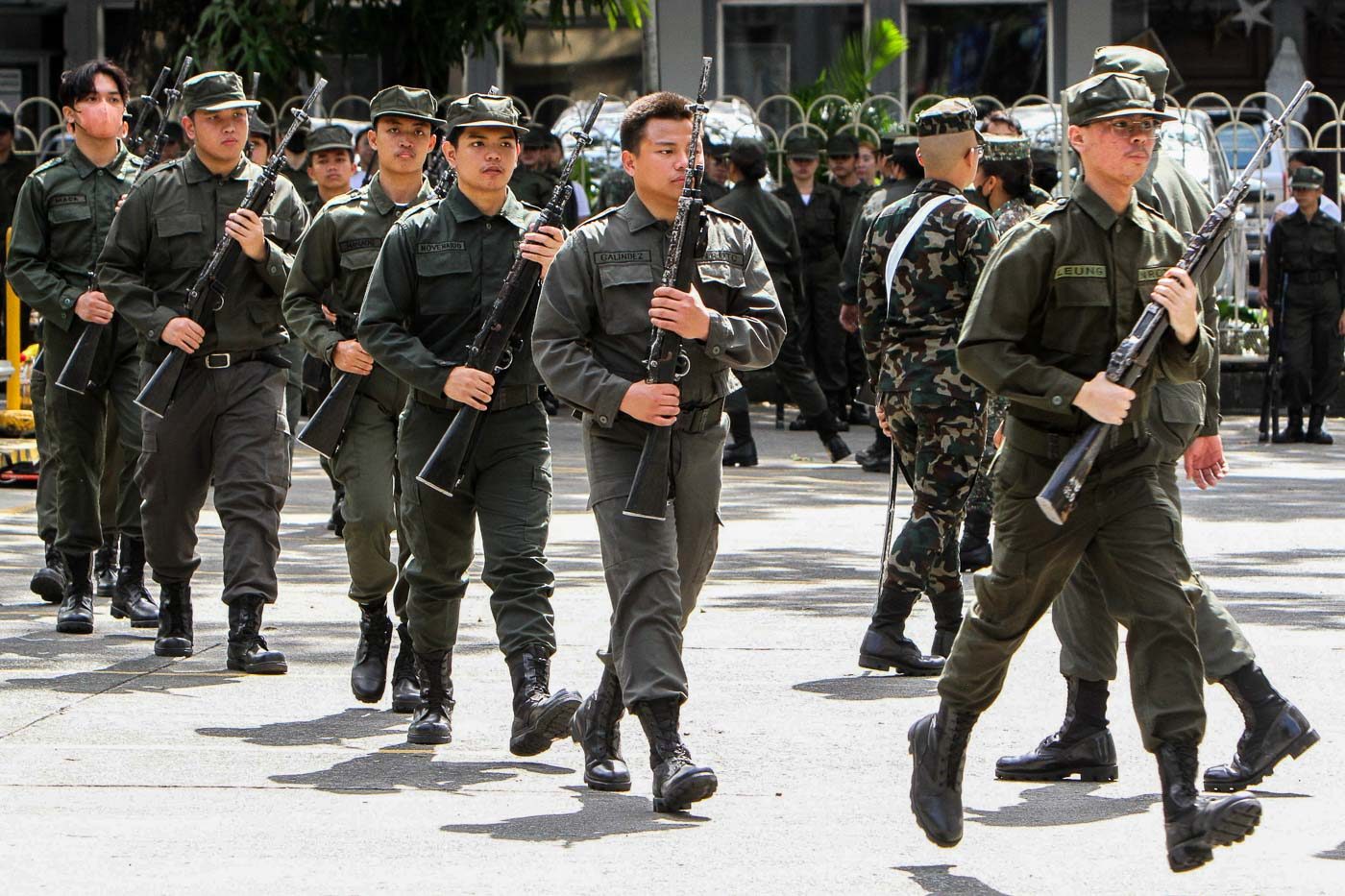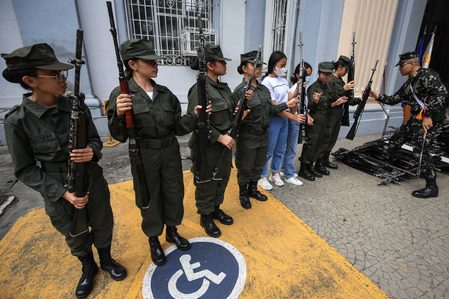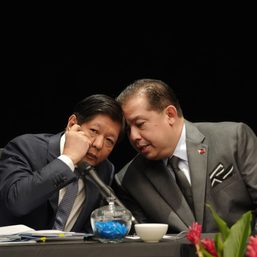SUMMARY
This is AI generated summarization, which may have errors. For context, always refer to the full article.

MANILA, Philippines – Despite opposition from students and various groups, the bill seeking to make the Reserve Officers Training Corps (ROTC) mandatory in college is among the priority measures expected to be passed by Congress on June 2.
It is part of the legislative agenda laid out by President Ferdinand Marcos Jr. in his first State of the Nation Address (SONA). Vice President Sara Duterte, concurrently the education secretary, is also pushing for this, although colleges and universities are not under her department.
Senator Ronald dela Rosa, a close associate of the Vice President, is a staunch advocate of mandatory ROTC, pushing for the consolidated bill that would create the program. He has said that instead of students spending so much time on TikTok, it would be better to put them through military training.
“Alam natin may looming threat tayo dito sa South China Sea, ‘yung pag-occupy ng China diyan sa ating mga teritoryo diyan sa South China Sea. Kailangan ready tayo, dahan-dahan na silang umaabante dito,” Dela Rosa said in a recent Senate hearing.
(We know that there’s the looming threat of China occupying our territories in the South China Sea. We need to be ready, they’re slowly advancing towards us.)
The push for mandatory ROTC isn’t new. Former president Rodrigo Duterte, father of the education secretary, also made a bid to make ROTC mandatory for all college students early in his presidency, but this plan fizzled out.
The murder of Mark Welson Chua, a student from the University of Santo Tomas, led to the abolition of the mandatory ROTC program in 2002. It became optional through Republic Act No. 9163 or the National Service Training Program Act of 2001.
Chua exposed the corruption in their ROTC unit back then in a write up published on their campus publication, The Varsitarian.
Who are the proponents?
In December 2022, the House of Representatives passed a bill seeking to compel college students to undergo a two-year mandatory National Citizens Service Training (NCST), instead of ROTC. It consolidated 28 bills from various authors.
The NCST’s curriculum will be focused on disaster response and management, survival and safety techniques, and civic duty inculcation. Its graduates will be incorporated into the AFP Reserve Force. The House version also seeks to institutionalize the four-year optional ROTC program, with a curriculum to be designed by the Department of National Defense (DND) and the Commission on Higher Education (CHED).
The consolidated version discussed in the Senate is different. The senators have filed six bills proposing to make ROTC mandatory for all college students. Vice President Duterte earlier said that it was better for the ROTC program to be implemented in the tertiary level instead of senior high school.
How much will the government spend?
At a Senate hearing on February 8, the DND presented to the lawmakers the estimated budget for the implementation of the mandatory ROTC. The Armed Forces of the Philippines, which is under the defense department, will be the lead implementer of the program, with support from the CHED and other concerned agencies.
The total projected budget of P61.2 billion for the implementation of mandatory ROTC can already build 24,480 classrooms.
- Phase 1 (2023) – P5,240,000
- Phase 2 (2024, Q1 to Q3) – P5,542,498,579.20
- Phase 3 (2024, Q4; 2025, Q1 to Q3) – P14,861,591,011.20
- Phase 4 (2025) – P20,384,338,579.20
- Phase 5 (2026) – P20,384,338,579.20
Critcisms
Critics have been saying that the Philippines is not in a state of war, and a mandatory ROTC training is not needed.
Meanwhile, youth groups said that what the government should do is to strengthen its National Service Training Program so students would have options choosing which program they are best fit for:
- ROTC
- Civic Welfare Training Service
- Literacy Training Service.
– Rappler.com
Add a comment
How does this make you feel?



![[OPINYON] Tungkol sa naging viral na social media conjecture](https://www.rappler.com/tachyon/2024/07/thought-leaders-conjecture-07262024.jpg?resize=257%2C257&crop_strategy=attention)

![[EDITORIAL] Apat na taon na lang Ginoong Marcos, ‘di na puwede ang papetiks-petiks](https://www.rappler.com/tachyon/2024/07/animated-bongbong-marcos-2024-sona-day-carousel.jpg?resize=257%2C257&crop=280px%2C0px%2C720px%2C720px)









![[WATCH] Bamban POGO scandal: There’s a bigger fish than Alice Guo](https://www.rappler.com/tachyon/2024/07/inside-track-tcard-bamban-pogo.jpg?resize=257%2C257&crop=435px%2C0px%2C1080px%2C1080px)
There are no comments yet. Add your comment to start the conversation.